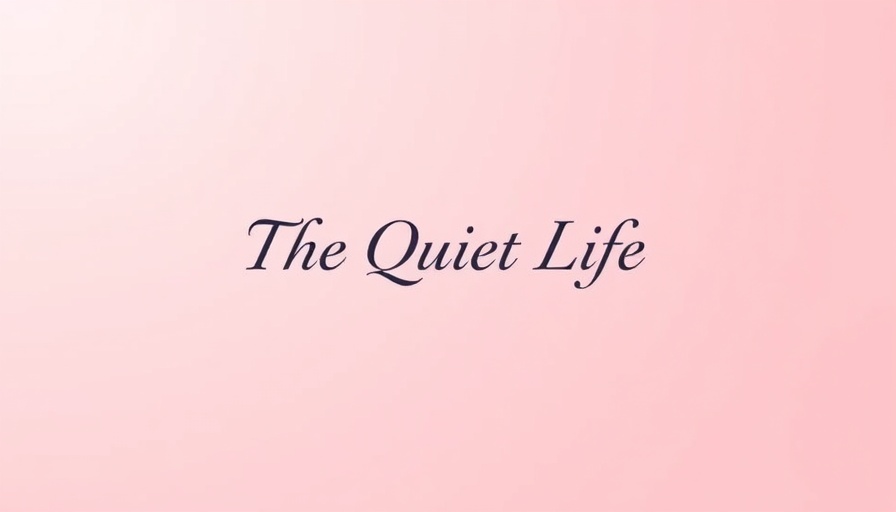
Understanding Susan Cain's Message on Introversion and Well-being
In a captivating candlelight chat with renowned author Susan Cain, discussions centered around the significance of introversion, mental health, and their profound impact on various facets of life unfolded. Cain, celebrated for her best-selling book, "Quiet: The Power of Introverts in a World That Can't Stop Talking," emphasizes the value of embracing one's true self, which is particularly resonant for diverse audiences such as youth, educators, families, and caregivers. In today's fast-paced environment, where extroversion is often idolized, Cain’s insights remind us that introversion holds its own unique strengths, particularly in fostering resilience and self-efficacy.
The Role of Mindfulness and Meditation
Central to the conversation was the role of mindfulness and meditation in cultivating mental health. Practices centered on stress reduction, such as deep breathing and meditation, have become lifelines for many individuals dealing with anxiety and emotional distress. By taking just a few minutes each day to engage in these practices, people can transform their mental landscapes, allowing them to better cope with the challenges of life, particularly in contexts such as South Africa, where social issues like youth crime and mental health stigma abound.
Empowerment Through Self-Understanding
Cain advocates for self-awareness as a tool for empowerment. By understanding their personality traits, individuals—especially women and the youth—can find avenues for personal and professional growth. This self-efficacy is essential, particularly for those grappling with feelings of inadequacy or self-doubt. In a struggle against societal pressures, embracing one’s introverted nature can lead to heightened self-esteem and better overall well-being.
Build a Supportive Community
One of the highlights of the conversation was the emphasis on community. Creating supportive environments allows individuals, particularly victims of various life challenges, to share their experiences and insight with one another. This sharing can foster resilience and promote mental health, whether in educational settings or community programs aimed at aiding families and caregivers. The collective healing process not only benefits individuals but also strengthens the fabric of the community as a whole.
Addressing the Crisis of Mental Health in South Africa
For residents of South Africa, grappling with the unique socio-economic challenges the country faces, Cain’s insights ring especially true. Mental health issues can often be overlooked due to stigma and lack of resources, yet they remain a critical topic of discussion. Empowering individuals with the tools for resilience can pave the way for progressive change. By promoting mental health awareness and advocating for therapy and support structures, there’s potential to reshape the narrative surrounding mental health in the region.
Taking Action: Strategies for Improvement
As individuals reflect on the rich discussions from Cain's chat, integrating practical strategies into daily life becomes paramount. Simple steps such as implementing stress reduction techniques, exploring mindfulness exercises, and fostering deep connections with others can lead to substantial improvements in mental health. Furthermore, encouraging open dialogues about therapy and mental health can demystify these topics, leading to broader acceptance and engagement.
Conclusion: A Call to Embrace Inner Strength
In conclusion, Susan Cain’s poignant insights encourage each of us to embrace our inner strengths and acknowledge the complexities of our personalities. For families, professionals, students, and caregivers, the message is one of hope—a reminder that understanding oneself can lead to extraordinary possibilities. Let us take the learnings from the candlelight chat to heart and create a community that celebrates every individual’s story, no matter how introverted. This could create a safer, more inclusive society that prioritizes mental health and resilience.
 Add Row
Add Row  Add
Add 




 Add Row
Add Row  Add
Add
Write A Comment